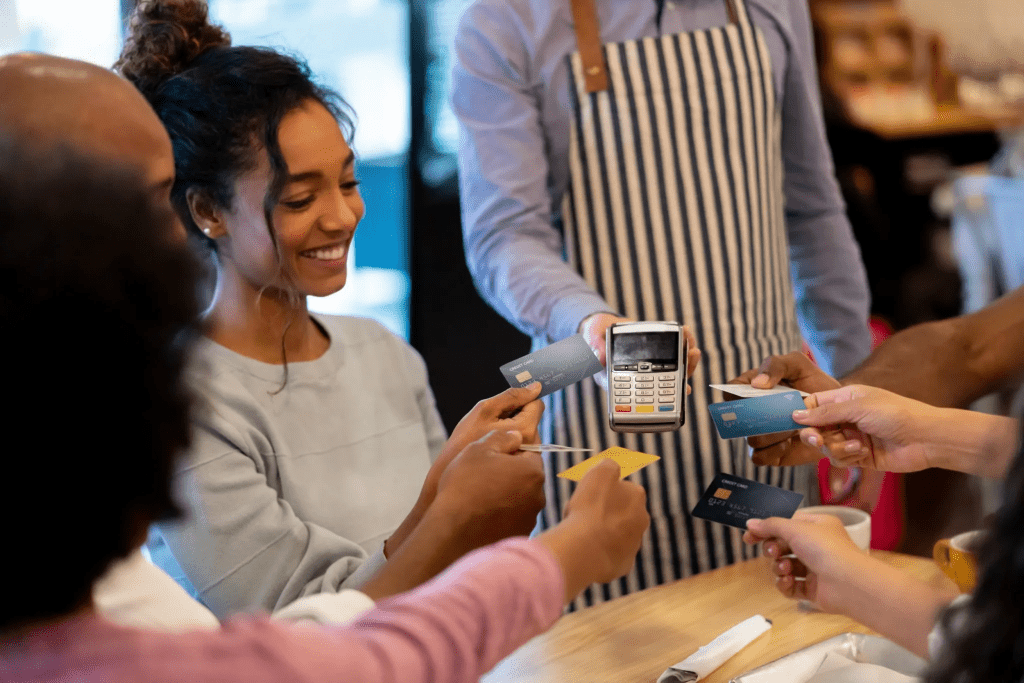We’ve all been there—enjoying a nice evening out with friends, only for the bill to arrive and the mood to shift. Suddenly, it’s no longer about good company and great food; it’s about the awkward dance of splitting the bill. Should everyone pay equally, even if some ordered more extravagant dishes? Or should each person cover what they ordered? For me, this dilemma became all too familiar, especially with two friends who always seemed to push the limits. Here’s what I did to finally put an end to it.
The Problem: When Friends Expect to Split the Bill Unevenly

As part of a close-knit group of about eight friends since college, we’d often go out to eat together. However, two members of the group, Susan and Greg, had a habit that quickly became frustrating. Whenever we dined out, they would consistently order the most expensive items on the menu and then expect everyone else to split the bill evenly. Their rationale? A sob story about tight finances that left the rest of us picking up the slack.
Initially, I tried to let it slide. After all, they were friends, and who wants to make things awkward? But as this pattern continued, it became clear that Susan and Greg were taking advantage of our generosity. The tipping point came last weekend when Dan, another member of our group, invited me to a casual dinner. I hesitated, knowing Susan and Greg would be there. But Dan convinced me to come, so I decided to approach the situation differently this time.
Setting the Scene: The Night That Changed Everything
When I arrived at the restaurant, I could feel the usual unease settle in. There were six of us that night, and as we perused the menu, I noticed most of the group sticking to moderately priced items, with each person’s meal averaging around $40. Then came Susan and Greg’s turn. Predictably, they ordered dishes totaling about $200 each—far beyond what anyone else was spending.
When the waiter reached me, all eyes were on my menu. Instead of ordering an entrée, I simply asked for a $4 drink. Dan, visibly puzzled, asked why I wasn’t ordering any food. I calmly told him that I’d lost my appetite. My response must have been contagious because two other friends immediately followed suit, canceling their orders and opting for drinks as well.
The Moment of Truth: Splitting the Bill
As expected, when the main courses arrived, Susan and Greg began to pick at their pricey meals. Soon after, the waiter brought the check, and Greg, without missing a beat, requested it be split six ways. This time, I wasn’t going to let it slide.
I stood up and corrected him, stating that the bill should be split three ways, as only three of us had ordered food. Greg looked confused, perhaps even a little panicked, as he tried to process what I was saying. “We always split the bill,” he protested. But I reminded him that those who didn’t eat shouldn’t have to cover the cost of those who indulged.

Dan, who had only ordered about $50 worth of food, was stuck with a hefty $146.98 bill. His jaw dropped when he saw the total—something I’d never forget. I calmly slid $10 toward the check to cover my drink, said my goodbyes, and left the restaurant.
The Aftermath: Dealing With the Fallout
The next morning, my phone was flooded with texts from Greg and Susan, accusing me of being selfish for not ordering food and forcing them to pay more than they’d expected. I couldn’t help but laugh—after all, they had ordered steaks that cost more than what they ended up paying. It was a small victory in a battle I’d grown tired of fighting.
Dan, however, wasn’t amused. He messaged me, saying that if I didn’t want to eat, I should have stayed home instead of pulling a stunt that left him with an inflated bill. I understood his frustration, but I also knew it was time someone stood up to Susan and Greg’s freeloading ways.
What I Learned: Standing Up for Fairness

Looking back, I realize that this situation could have been avoided if we had established clearer expectations from the beginning. But sometimes, people don’t change unless they’re confronted with the consequences of their actions. Susan and Greg had become accustomed to relying on the rest of us to cover their extravagant tastes, and it was time to break that cycle.
Moving forward, I’ve decided to be more upfront about how bills will be handled when dining out with friends. Everyone should pay for what they ordered—it’s the fairest way to ensure that no one feels taken advantage of. And if that means avoiding dinners where I know someone will try to pull a fast one, so be it.
Conclusion: A New Approach to Dining Out with Friends
This experience taught me an important lesson about setting boundaries and standing up for what’s right, even in social situations where it might be uncomfortable. While it’s great to be generous, it’s equally important to ensure that generosity isn’t being exploited. The next time you’re out with friends and the bill arrives, don’t be afraid to speak up and suggest a fairer way to split the check. After all, friendship should be about mutual respect—not about who can outspend the others on someone else’s dime.


